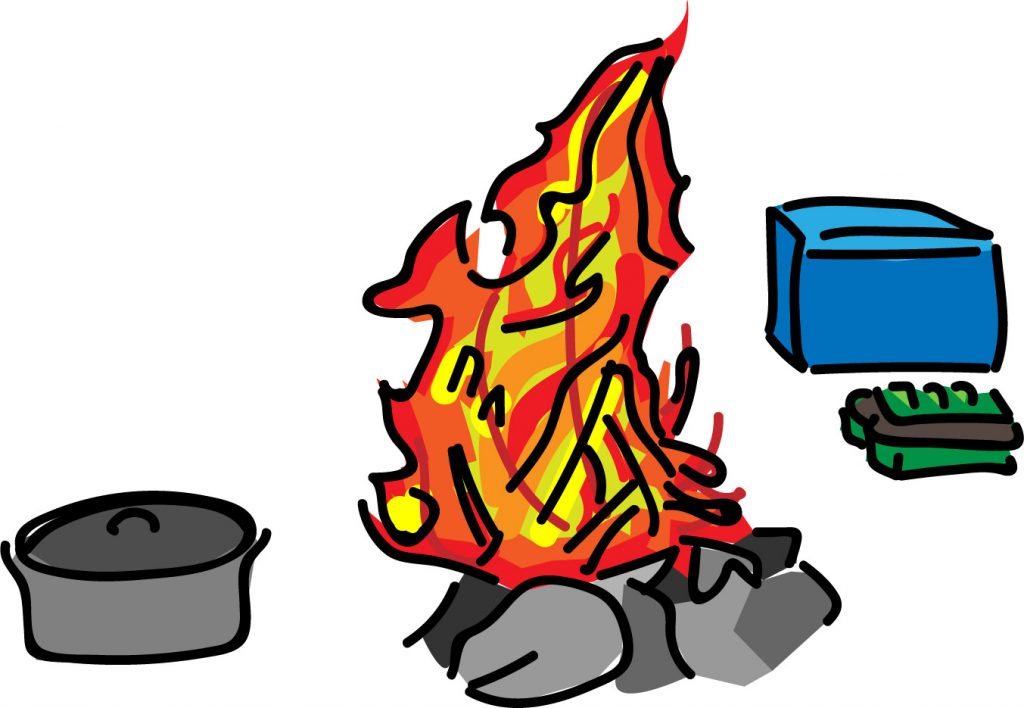
How to Protect the Outdoors While You Hike
When we hike, we get to enjoy nature — but we also have a responsibility to take care of it. The Leave No Trace principles are simple guidelines that help us reduce our impact so future generations can enjoy the same wild places we do today.
These seven principles apply to everyone, whether you’re on a short trail near home or deep in the backcountry.
1. Plan Ahead and Prepare
Good preparation helps you stay safe and avoid unexpected problems on the trail.
- Know the rules and conditions of the area you’re visiting
- Bring the right gear, clothing, and maps
- Avoid hiking in large groups on narrow or sensitive trails
- Check the weather and plan your route accordingly
Why it matters: Poor planning can lead to accidents, lost hikers, or damage to the environment.
2. Travel and Camp on Durable Surfaces
Stick to established trails and campsites whenever possible.
- Walk in the middle of the trail, even if it’s muddy
- Camp at least 200 feet away from lakes and streams
- Avoid creating new paths or disturbing vegetation
Why it matters: Staying on durable ground prevents soil erosion and protects plant life.
3. Dispose of Waste Properly
Pack it in, pack it out — that includes all trash, food scraps, and gear.
- Bring a bag for your trash
- Don’t leave behind wrappers, tissues, or biodegradable items
- Use bathroom facilities when available; otherwise, bury human waste 6–8 inches deep and 200 feet from water
Why it matters: Litter and waste can harm wildlife, pollute water, and ruin the experience for others.
4. Leave What You Find
It’s tempting to take a cool rock or flower, but it’s best to leave things as they are.
- Don’t pick plants or disturb wildlife homes
- Leave rocks, antlers, and artifacts where you find them
- Avoid carving into trees or marking rocks
Why it matters: Natural and cultural items belong to everyone — and the next person should get to see them too.
5. Minimize Campfire Impact
Fires can cause lasting damage if not handled carefully.
- Use a camp stove instead of a fire when possible
- If fires are allowed, keep them small and use an existing fire ring
- Burn only small sticks from the ground — nothing living or large
- Make sure the fire is completely out before leaving
Why it matters: Fires can scar landscapes, start wildfires, and destroy habitats.
6. Respect Wildlife
Wild animals are just that — wild. Watch them from a distance and don’t try to feed them.
- Don’t approach or follow animals
- Store food securely to avoid attracting wildlife
- Keep pets under control or on a leash
Why it matters: Feeding or disturbing wildlife can harm them and create dangerous situations for people and animals.
7. Be Considerate of Others
Everyone deserves a peaceful experience outdoors.
- Keep noise levels down
- Yield the trail to others (uphill hikers, horseback riders, etc.)
- Don’t block the trail or viewpoints
- Step aside to let faster groups pass
Why it matters: Courtesy helps everyone enjoy their time outside.
Why It All Matters
Leave No Trace isn’t about being perfect. It’s about being thoughtful. Every time you follow these simple steps, you help keep nature wild, clean, and safe — for yourself, for others, and for the future.